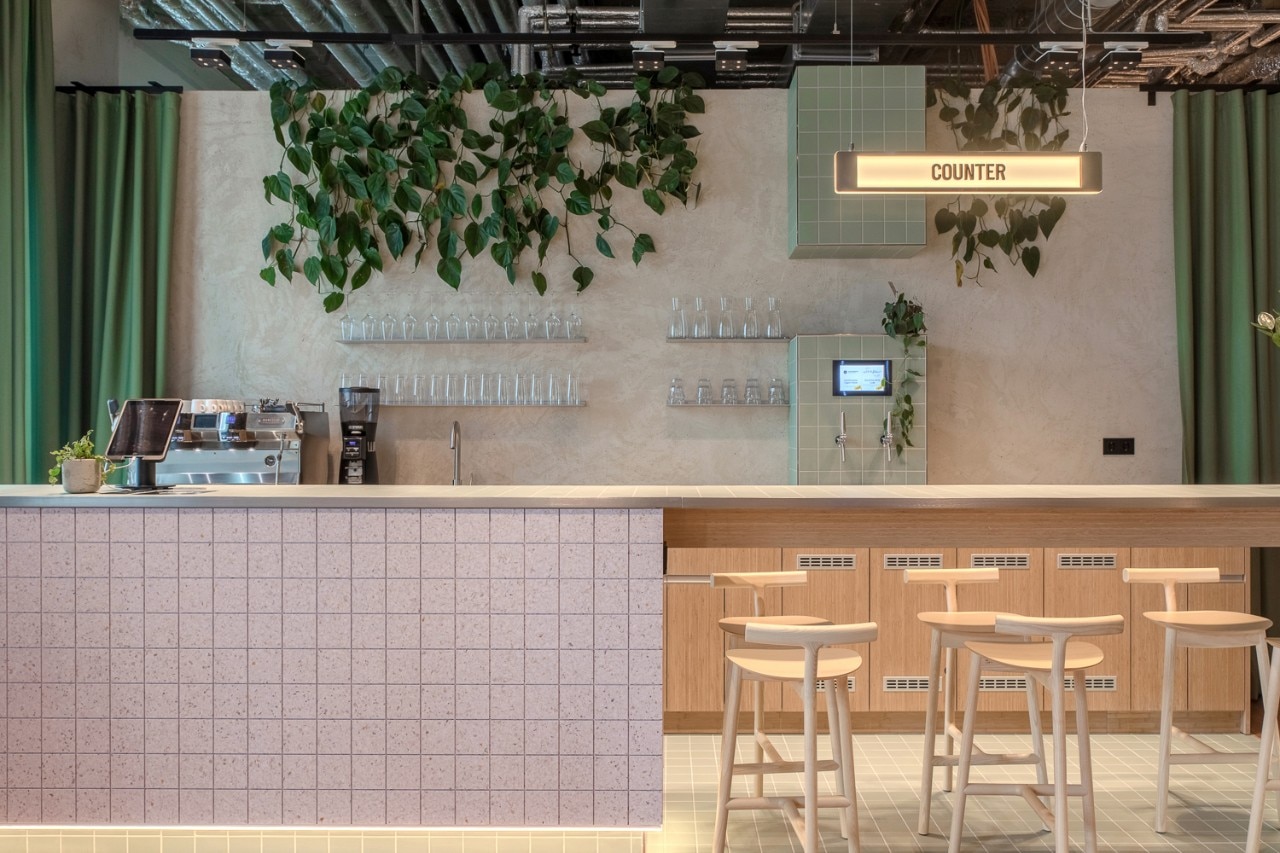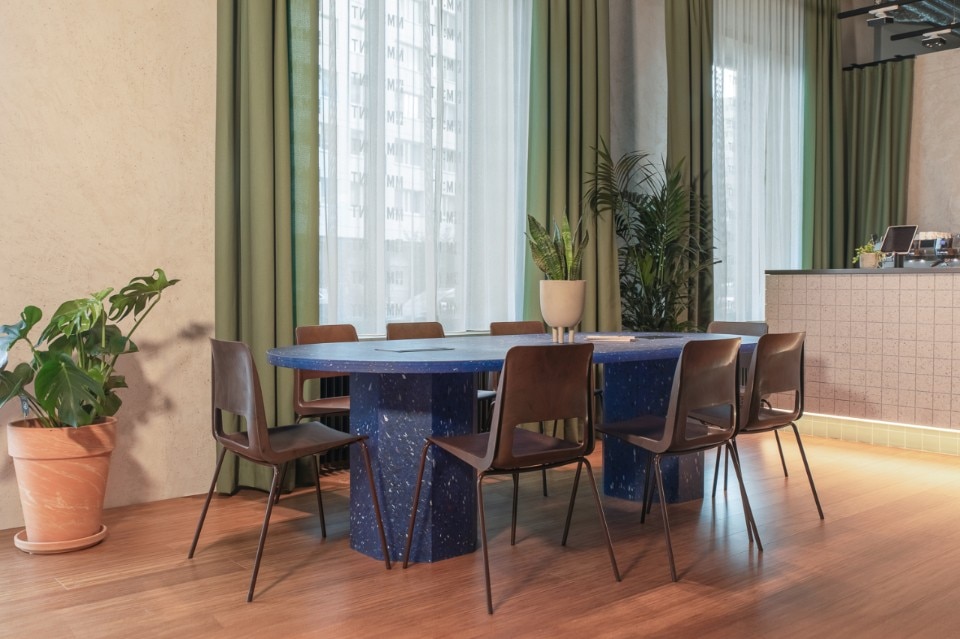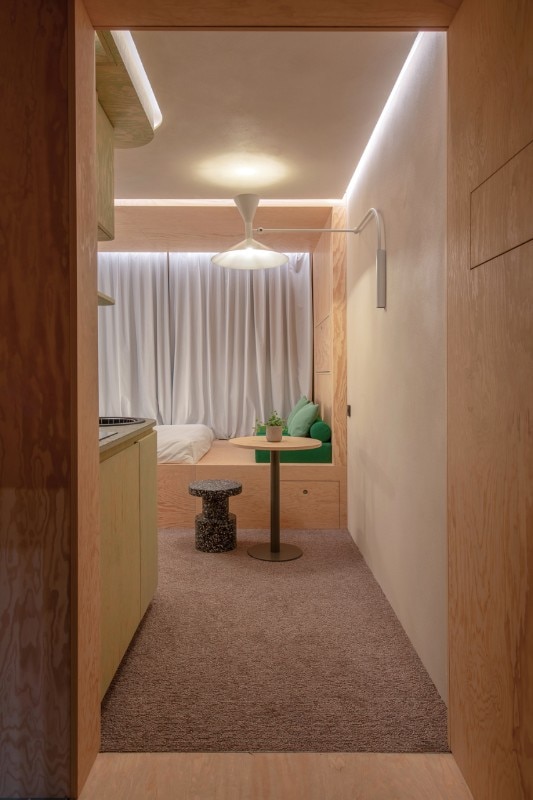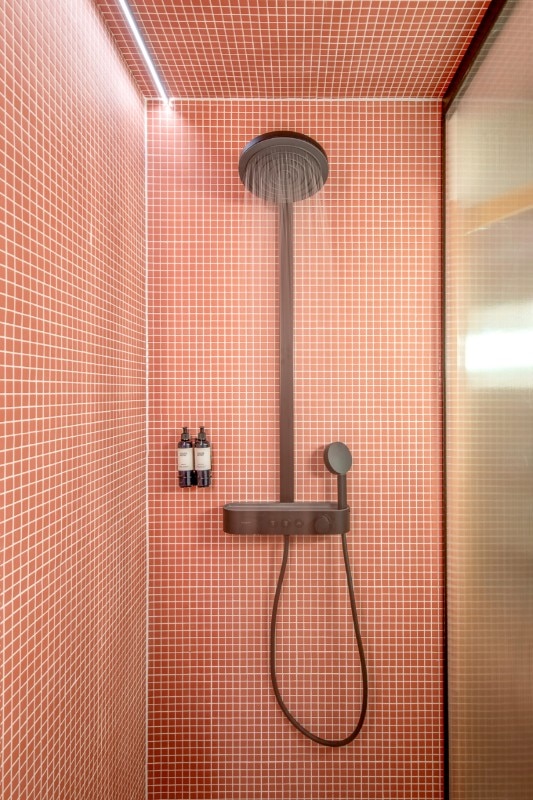The entrance is an unremarkable glass door just a few steps from the bridge near the S-Bahn train station at Hackescher Markt. Behind the buildings, the top of the Alexanderplatz tower peeks out. Alexanderplatz, East Berlin. How much time has passed since the fall of the Wall? 35 years and millions of light-years, by now. Berlin is something else, and maybe it is not even Berlin anymore.
At the MM:NT Berlin Lab, you enter with an app. You receive a link on WhatsApp on the morning of your check-in. Beyond a curtain, the entrance is revealed: a sofa, a large dark blue oval table with a dream-like number of outlets for any digital nomad. On the short side of the lobby, to the left, there is a white square-tiled counter with coffee capsules — although the coffee machine is not here — and earplugs, even though the place is actually quiet, despite the fact that the neighborhood, like half of Berlin, is one big construction site. Behind it, there is a sink with filtered water running, and glasses neatly arranged on shelves. There is a futuristic machine that serves wine or beer for a fee. When you are done, you will put the glass directly into the dishwasher.
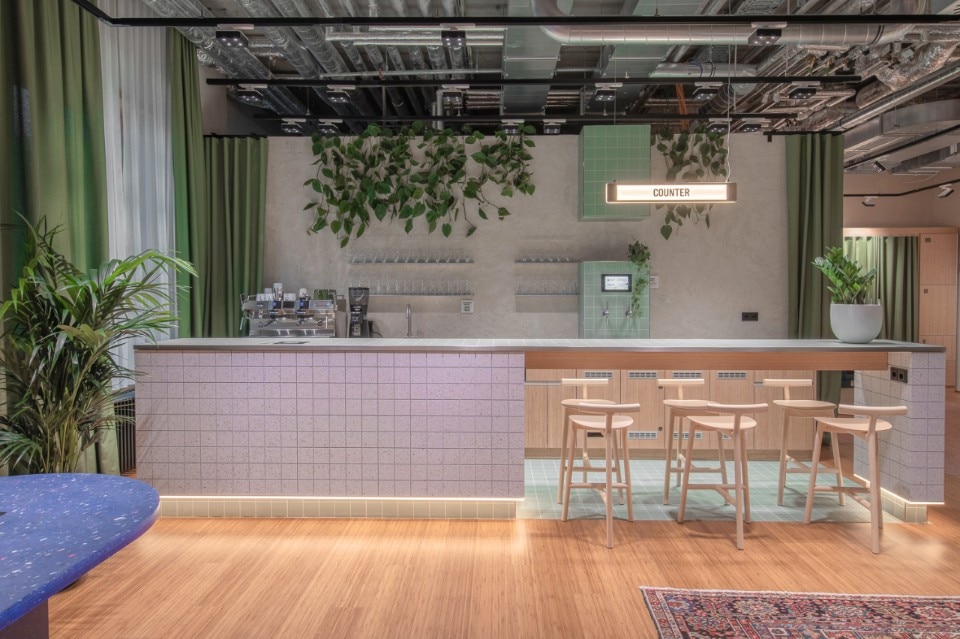
There is no one in this space, dominated by soft pastel colors, which create a welcoming atmosphere that softens the harshness of Berlin outside: its gray winter skies, the darkness that comes either too early or never, and the summers that are getting hotter here too.
Everything is automated
Rather than a hotel entrance, it looks like a Kantstrasse design showroom or one of those labs where tech brands train the machine learning for smartphone cameras. Everything is automated. There are only six rooms, and there is a machine that prints a key card if you do not want to use your smartphone to open the doors. QR codes are scattered all over the place, leading to pages and pages of instructions. There is even a QR code for emergency rules. The entire hotel is on the ground floor, and the rooms have no windows, but the design touch is everywhere. This is the key and saving grace of the place: the design, the choice of materials, and the integration of a technological interface that does not require the presence of human staff, giving the whole place a post-fallout vibe.
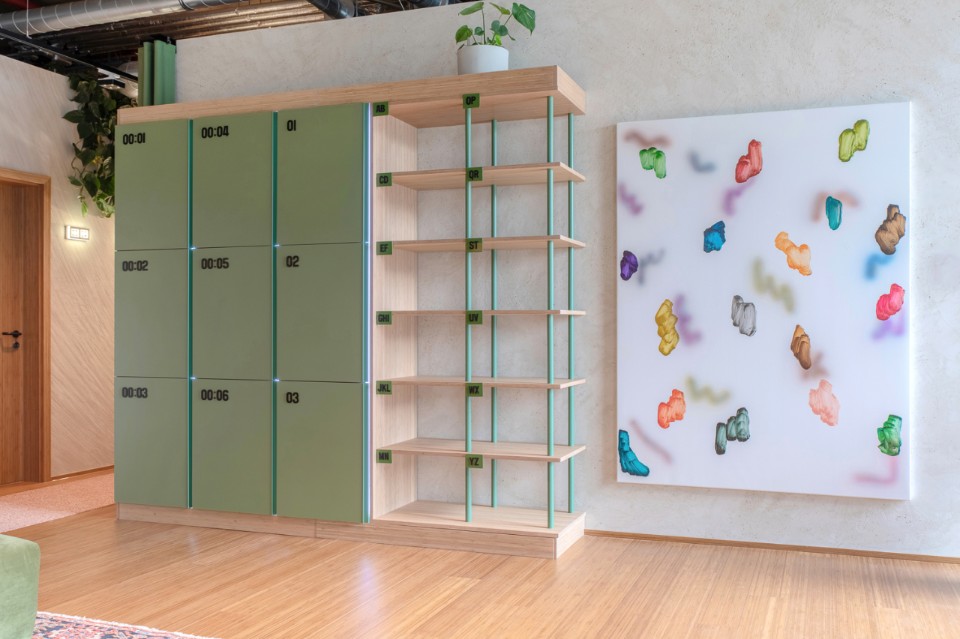
This space could have been any shop in this area, which is one of the many centers of a city without a true center. Around here, it feels a bit like Williamsburg or Soho. You will find all the flagship stores of aspirational brands that appeal to affluent Western millennials — and not just them. From Apple to Muji to Camper, & Other Stories, and even a super cute H&M shop with a garden. There is Patagonia and North Face, as well as futuristic brands like Lynk & Co. and Cowboy. A packed bubble tea shop and the Milano Vice pizza slice joint. But there is also the market in the square and the para-Gigeresque scenarios of Eschschloraque, the bar that seals off one of the most famous graffiti-covered alleys of what used to be the underground capital of Europe. The Boros Foundation bunker and the bustling KW Institute for Contemporary Art are not far, nor is the lovely bookstore Do You Read Me?
This is the key and saving grace of the place: the design, the choice of materials, and the integration of a technological interface that does not require the presence of human staff, giving the whole place a post-fallout vibe.
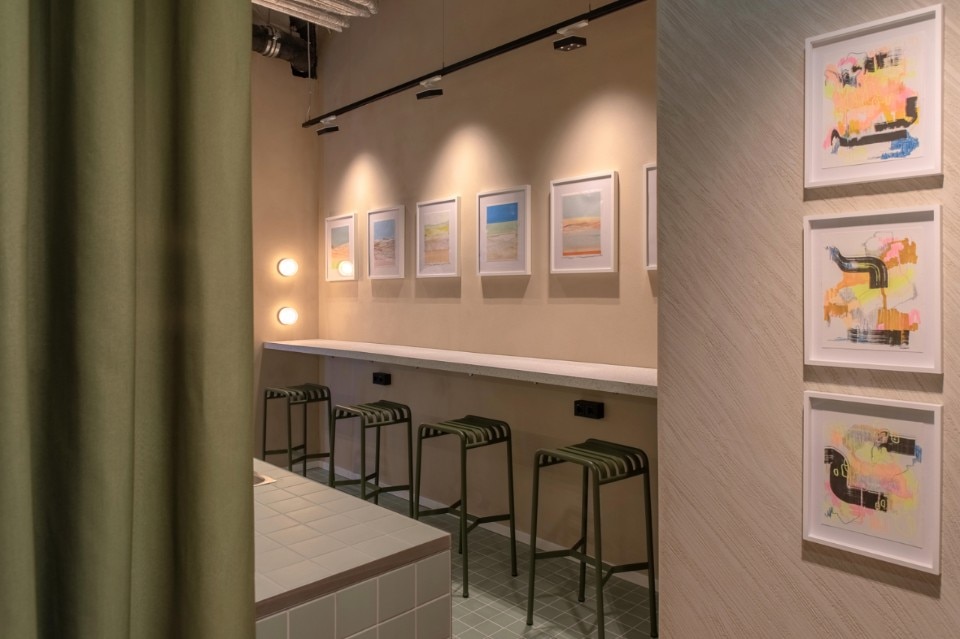
Crafting the ideal room
MM:NT is an experiment by Adina Hotels (one of the chain’s hotels is right next door), part of the Australian TFE group. In its first two months, guests stayed for free to gather feedback.
“A lot of ideas came out of those insights,” Philippa Wagner, founder of the creative studio PeoplePlacesSpaces, told Domus in a Q&A via email, adding that the information is “not shareable at the moment.” Wagner has been closely involved in the development of this first MM:NT from the initial concept three years ago, and she is currently overseeing the delicate transition from beta to full rollout. She told Domus that this is a unique case and will remain in “lab format” for the next five years, with its six experimental rooms: “Each of the rooms are different for us to test out the best design configurations and room layouts in order to create the best room.”
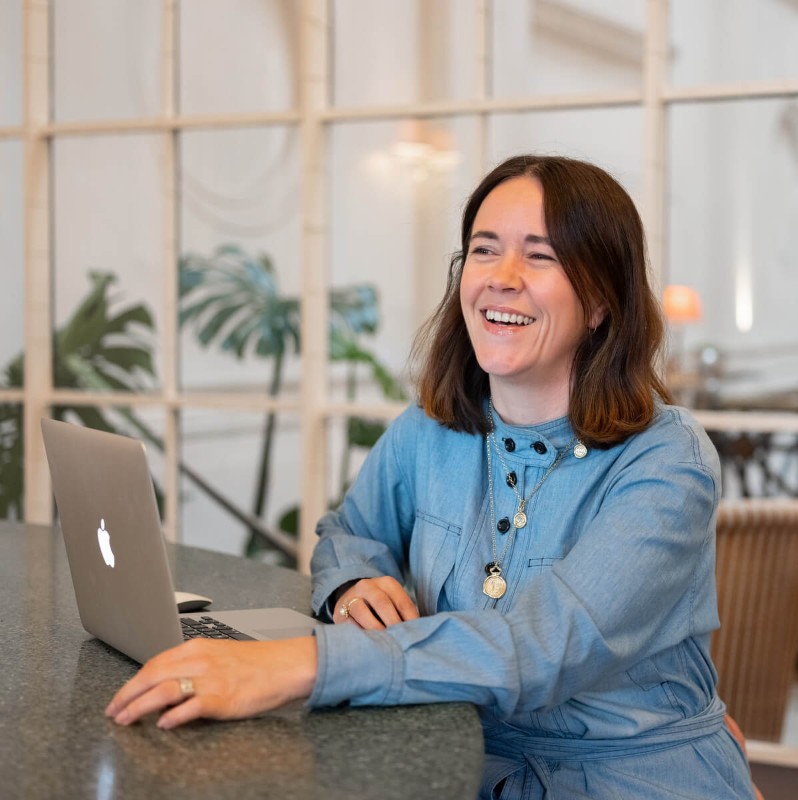
Under Wagner’s supervision, MM:NT was designed by Acme, the lead designer, and the Vienna-based studio BWM, to identify a design model that could then be replicated. Erich Bernard, founding partner of BWM, tells Domus that an important challenge of the project “was to ensure that guests wouldn’t feel confined or trapped despite the absence of natural light. To address this, we designed a wall next to the bed with curtains that gave the illusion of a window.” In rooms where there are windows, however, “we focused on creating a sense of openness through thoughtful lighting.”
The lesson from the pandemic
Like many recently completed hospitality projects, this one was directly influenced by the experience of the pandemic, explains Bernard: people are seeking spaces that offer comfort and flexibility, which is why the overall space of the hotel was designed “to incorporate all the key functions of a home,” even on a small scale. Hence, the seating area at the entrance, which transforms into a workspace, and the kitchen areas.

“Sustainability was key, we built a manifesto around this,” and a “residential feeling” was also an important point, emphasizes Wagner. “The brief was very much to bring a soft, residential feel to the spaces so that people immediately felt at home. Also soft textures make for a better cozier environment.”
In Berlin, the former city of squats where just a few years ago you could rent an apartment for a handful of euros, MM:NT is the herald of a possible future where everything is beautiful, fast, and automated, even on a scale akin to accommodations in Singapore. The little space that exists here is maximized as if this were the ‘designer’ answer to capsule hotels. This is confirmed by the ubiquitous paneling, sophisticated flooring, the shower-toilet compartment with its soft colors, the customized furnishings and seating, the switches always in the perfect spot, the bedside table with a wireless charging surface for the phone, and the spacious luggage drawer under the bed in the small room.
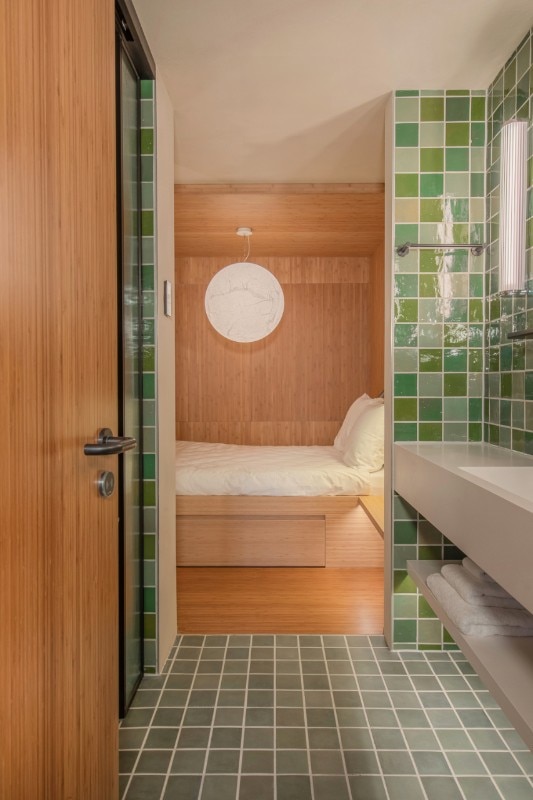
Limits of automation
However, not everything works in this prototype of automated hospitality: the lack of human staff is noticeable — I, for instance, needed ice for a bruise I had, and there was no one to ask — and there is no way to leave your luggage in storage after check-out (or rather, you can take it to the Adina next door). The environments are certainly comfortable, and at least at the beginning, the feeling is that you have a whole home to yourself.
People are seeking spaces that offer comfort and flexibility, which is why the overall space of the hotel was designed ‘to incorporate all the key functions of a home,’ even on a small scale.
Erich Bernard
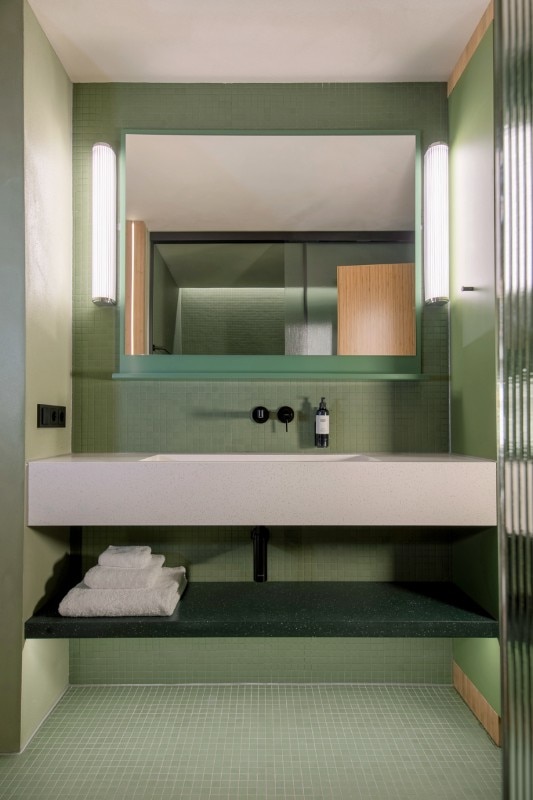
However, at some point a different feeling might arise, a certain unease and that something that makes a hotel unique and still makes us prefer it to an Airbnb apartment: getting itinerary advice from the concierge, heading down for a chat at the bar, or observing the always quirky crowd at breakfast. In short, the human factor is missing.
“For MM:NT Berlin Lab with six rooms there is only a host at certain times, but for MM:NT a host will be present all the time to make people feel connected and at home,” Wagner points out. She explains that “the idea is not to make it human-less rather functional and simple.” But this is an experiment, and it should be experienced as such. “However, as this is a test lab we are testing out lots of things,” the designer tells Domus, who adds, “we also purposefully built in some mistakes so that we could test theories.”
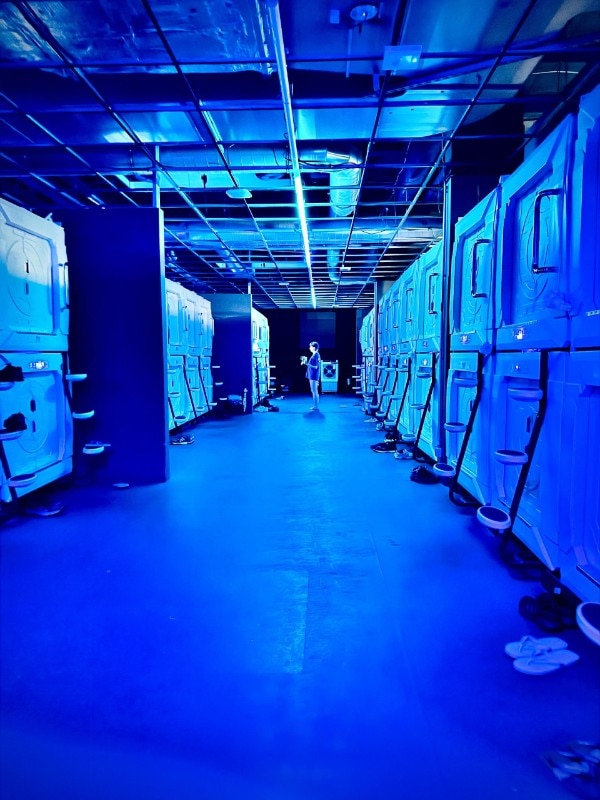
Like certain technologies still in ‘beta,’ the MM:NT Berlin Lab will especially appeal to those who enjoy sampling novelties before their official launch. Otherwise, with a nightly rate starting from €90 for a room where two people are definitely quite cramped, it might not be the hotel you would recommend to your friends.

